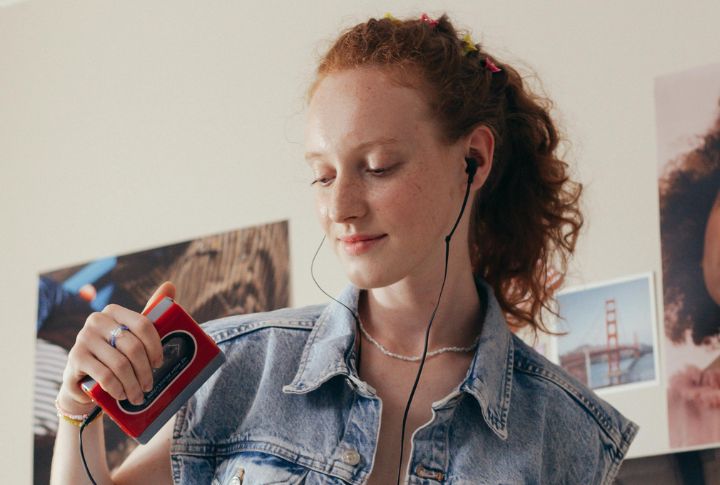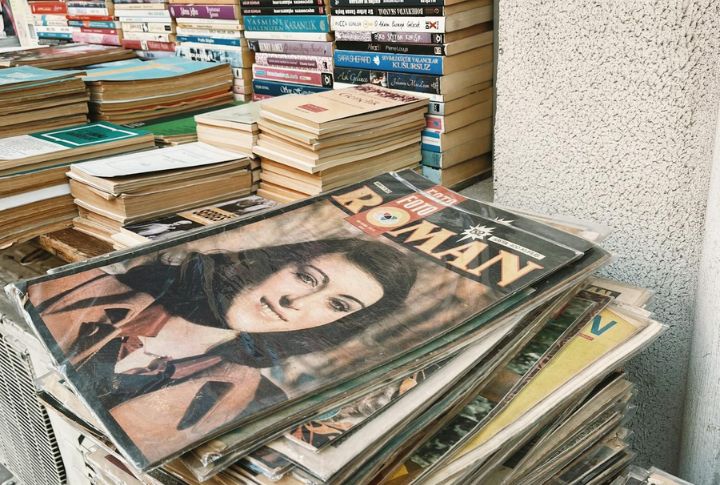Lifestyle
20 Things Gen X Did Before Everyone Else Caught On

Gen X turned skepticism into style and rebellion into rhythm. They shaped the world between analog grit and digital promise, building habits ahead of their time. These trends didn’t just reflect a moment—they laid the groundwork for how people move through life now.
DIY Culture Before It Was Cool

Long before YouTube tutorials, this generation built things by trial and error. They fixed broken stereos with duct tape and turned old jeans into something wearable again. Creativity came from necessity, not trends, and it flourished in bedrooms and garages across the country.
Thrift Store Fashion And Vintage Finds

Back then, digging through thrift bins wasn’t a fashion statement—it was how you found something original. A weathered leather jacket or a second-hand band tee carried more edge than anything off the rack. It was less about labels and more about what felt real and personal.
The Rise Of Independent Music And Zines

Cassette tapes were swapped between friends, which introduced new bands that the radio never played. Zines passed hand in hand and brought underground scenes to life in towns that didn’t have venues. These eventually built a network of ideas and sounds that operated entirely outside the mainstream.
Working Remotely From Coffee Shops

Writers, designers, and coders took their work to coffee shops back when most people were still chained to office desks. Early Wi-Fi, unreliable as it was, offered just enough connection to break free. Plus, the hum of conversation and clinking mugs made the perfect creative backdrop.
Cynical Humor As A Coping Mechanism

Sarcasm turned into armor during years marked by financial strain and cultural confusion. Series like “Daria” and films like “Reality Bites” nailed the tone—witty, sharp, and unbothered. That dry delivery spoke volumes in a world where cheerful messaging rang hollow.
Questioning The System Before It Was Trendy

Challenging institutions was a worldview back then. Whether it was distrusting corporate advertising or refusing to follow a linear career path, many opted out of what didn’t make sense to them. It wasn’t rebellion for attention; it was a refusal to play by a broken set of rules.
Pioneers Of Early Internet Subculture

Before social media, people gathered in chat rooms and forums like Usenet to discuss everything from music to tech. Online, people shaped their identities without filters or followers, creating the blueprint for how the internet builds culture today.
Early Environmental Consciousness

Before climate change filled headlines, some were already collecting rainwater, biking everywhere, and composting in their backyards. Environmentalism was less a trend and more a mindset shaped by oil spills and ozone scares, especially when protecting the planet felt urgent and deeply personal.
Mental Health Through Music

Bands like Nirvana and Tori Amos addressed emotional struggles and pain at a time when mental health was rarely spoken about. They gave language to feelings that weren’t openly discussed. Long before mental health was destigmatized, the music already knew something was wrong.
The Birth Of The Side Hustle

People found creative ways to earn extra money, like selling crafts at concerts or freelancing for local gigs. It wasn’t about chasing trends; it was about making ends meet and following passions. This hustle often became a necessary part of balancing work and creativity.
Celebrating Non-Traditional Families

People embraced blended households, single parenting, and chosen families before society widely accepted them. The shift reflected changing values about love and support that didn’t always fit the old mold, quietly reshaping how communities define the “modern” family today.
Nurturing A Culture Of Individualism

Many pushed back against labels and stereotypes, celebrating uniqueness over conformity. This attitude encouraged bold fashion choices and unconventional lifestyles. It also sparked a movement where people felt freer to express their true selves without worrying about fitting in.
Early Advocates Of Work-Life Balance

Burnout was a growing concern, so some began to prioritize personal time and boundaries even before it was widely discussed. Their efforts laid important groundwork that slowly influenced workplace culture and encouraged future generations to seek healthier balances between work and life.
Normalizing Therapy And Self-Help

Seeking counseling and reading self-help books became less taboo as more people embraced personal growth. Mental health care was recognized as a useful way to manage stress, improve relationships, and understand identity during times that often felt chaotic or uncertain.
Alternative Learning Styles And Unschooling

A few parents and educators challenged traditional schooling by focusing on creativity and student-led exploration. These early experiments questioned rigid education systems and opened minds to new ways of helping children grow and develop on their own terms.
The Minimalist Rebellion Against Excess

Rejecting the flashy consumer culture, some chose simpler living and smaller wardrobes. This minimalist approach wasn’t about deprivation but about freeing themselves from clutter and distractions, which allowed more focus on what truly mattered in life.
Pushing For Representation In Media

People challenging the norm of all-white casts and narrow roles on TV and in movies surged in this era. They created niche magazines and independent films that brought underrepresented voices and experiences into the spotlight, giving audiences stories that felt real and diverse.
Rediscovering “Uncool” Hobbies

Knitting, stamp collecting, and model building attracted fans who rejected mainstream trends. These activities offered a slower pace and connection to the past while providing a tangible, hands-on experience that many found calming in an increasingly digital world full of distractions.
The Rise Of Food Consciousness

Before organic food aisles became common, people began questioning the origins and quality of their meals in the 80s. Farmers’ markets gained popularity, homemade dishes appeared more often, and there was growing awareness about additives and processing in everyday food products.
Reinventing Pop Culture Through Mashups And Remix

Artists mixed music and media from different genres and eras to create fresh, new expressions. Combining familiar elements in unexpected ways became a fun way to explore creativity without needing to start completely from scratch or follow traditional rules.

